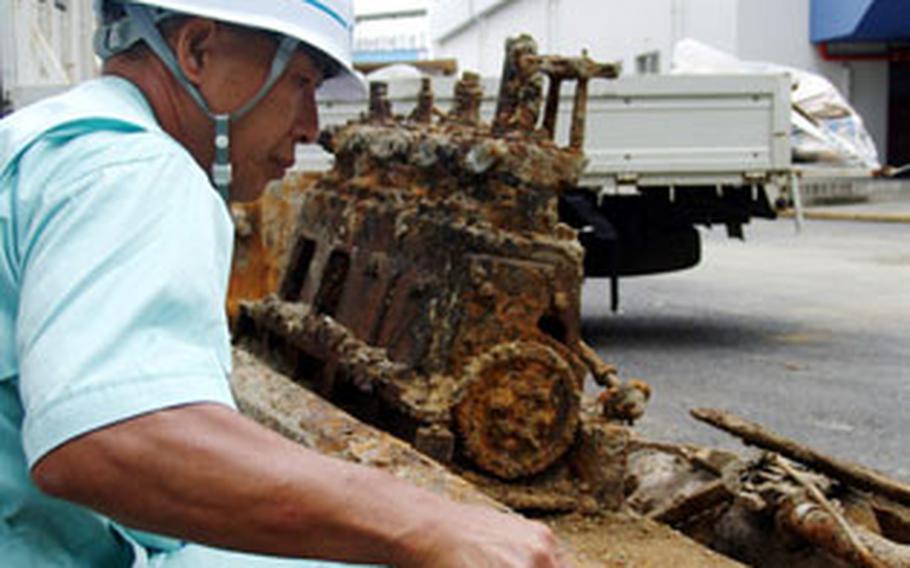
A World War II-era engine, unearthed recently at Yokosuka Naval Base, Japan, is inspected by Tsunehiro Ogata, Nikkai Corp. safety officer. (U.S. Navy)
YOKOSUKA NAVAL BASE, Japan — Bury it, dump it in the water or burn it: The Japanese Imperial Navy cleaned house before the Americans occupied Yokosuka Naval Base in 1945.
Excavating contractors sometimes hit upon this housekeeping, said Ryouko Araki, the U.S. Navy base’s environmental technician. After 60 years underground, these items can transform from rubbish to relic.
“Even a little brick can tell a story,” Araki said. “That’s why we encourage people to call us when they find something.”
A recent U.S. Fleet and Industrial Supply Center trench-digging project unearthed an 8-foot water tank and an engine once thought to be Japan’s first diesel motor.
The sleepy fishing village of Yokosuka, due to its resemblance to the French port of Toulon, activated Japan’s industrial age. Finance magistrate Tadamasa Oguri wanted Japan to build a Navy and contracted France’s Francois Leons Verny to help him.
Thus began Japan’s first industrial project, the Yokosuka Arsenal. It became Yokosuka Shipyard in 1903 and now is the site of Yokosuka Naval Base.
Upon closer inspection, the engine isn’t likely Japan’s first diesel, Araki said. It’s too small, and not old enough, Araki said.
“We think it’s probably an experimental motor,” Araki said. “The first diesels were built in 1932 for Japanese submarines in 1934.”
No one will know the engine’s true age or purpose until the rust and dirt are removed, she said.
It’s now in storage at Yokosuka Museum. Other industrial relics from the base, such as steam hammers and a gantry crane, are in the museum bearing Verny’s name by the JR Yokosuka train station.
All items are surveyed according to guidelines established in the base’s Cultural Resource Management Plan, which is updated every five years, Araki said.
These days, more people are getting interested in Japan’s industry, Araki said. Yokosuka is looking at building an all-industrial museum and Japan’s second oldest dry dock, in Yokohama (Yokosuka’s was first), now is experiencing newfound popularity as a beer garden, she said.